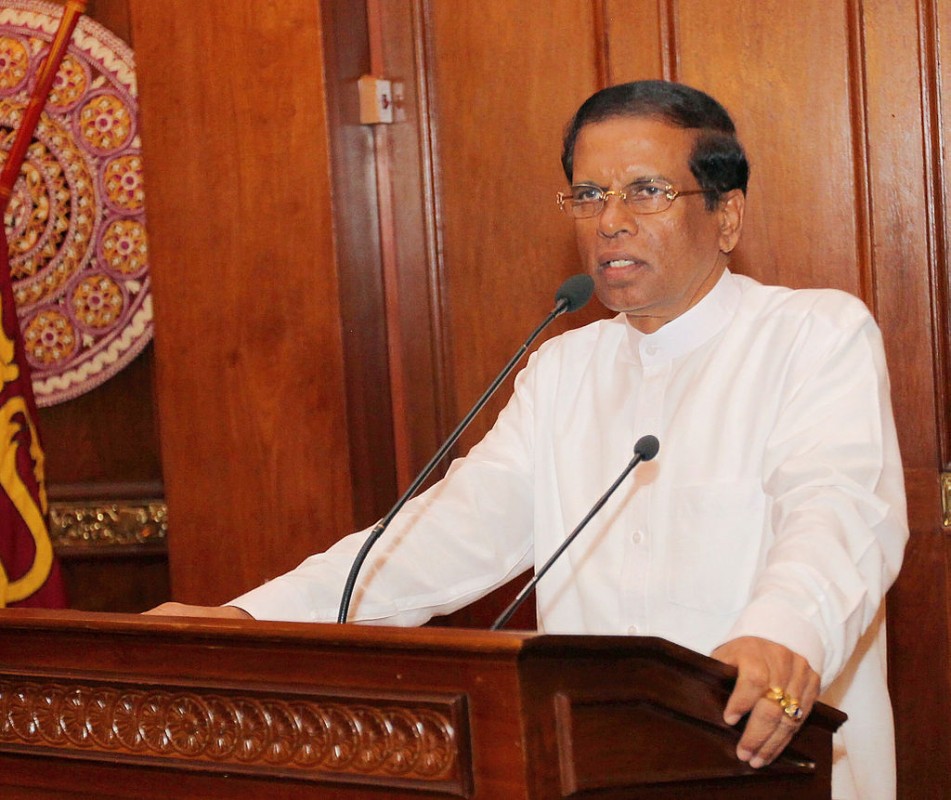Harm Reduction International (HRI) has called for Sri Lankan authorities to immediately halt the impending execution of all prisoners convicted of drug offences, to commute all existing death sentences, and to abolish the death penalty entirely.
In an open letter, HRI has urged the United Nations Office on Drugs and Crime (UNODC) and International Narcotics Control Board (INCB) to apply pressure on the Sri Lankan Government following planned executions of four people on death row for drug offences, backed by over 100 human rights organisations, including the Sri Lanka based Centre for Policy Alternatives.
Giada Girelli, a human rights analyst at HRI, told TalkingDrugs: “There is no evidence that the death penalty is a deterrent to the drug trade. President Sirisena is making a cynical political move that will violate international human rights law and turn Sri Lanka into a pariah.”
At least four people have been sentenced to death for drug-related offences as part of a so-called “National Drug Eradication Week”, from 21 June – 1 July 2019, in what would be the first use of the death penalty in Sri Lanka since 1976.
Execution warrants for the four prisoners have already been signed by President Maithripala Sirisena, with their executions appearing to be set as early as Saturday, 29 June – ending a 43-year moratorium on the use of the death penalty.
President Maithripala Sirisena’s spokesman Rajitha Senaratne has stated that: “From now on, we will hang drug offenders without commuting their death sentences.” A further 46 execution warrants have been prepared and are now awaiting the president’s signature.
Mr Sirisena stated that he would reinstate the death penalty for drug trafficking as early as July 2018 – a proposal backed by the Sri Lankan cabinet and meant to “replicate the success” of President Rodrigo Duterte’s so-called drug war in the Philippines. Duterte’s war has led to – on average – 33 people being killed in the country every day since his sweeping electoral victory in June 2016, with policies targeting the most vulnerable communities in the country.
Of the 24,000 people currently incarcerated in Sri Lanka, 60 per cent are for a drug-related crimes; there are 1,229 inmates on death row, of which 48 are convicted of drug offences. Sri Lankan authorities say a tougher approach is needed to combat what they report as an increase in drug-related crime, though this approach has yielded few positive outcomes at a global scale and resulted in significant human rights abuses and state violence in several countries, including – but by no means limited to – the executions and extrajudicial killings of Sri Lanka and the Philippines respectively. Figures from the 2019 European Drug Report showed a significantly higher drug-induced mortality rate in adults (15-64) for countries with punitive drug policies, such as Estonia (130 per million), Sweden (92 per million) and the UK (74 per million). For context, the average mortality rate due to overdoses in Europe in 2017 is estimated at 22.6 deaths per million.
Critics have called for Sri Lankan authorities to immediately halt the impending execution of prisoners convicted of drugs offences and to commute all existing death penalties. Calls to abolish the death penalty continue to be made on the grounds that executions for drug offences are prohibited under international human rights law.
As South Asia Director at Amnesty International Biraj Patnaik states: “The taking of a human life by the state is one of the gravest acts a government can commit. The severity of the punishment as a minimum requires complete transparency as a key safeguard of due process.”
Drug offences are punishable by death in at least 35 countries and territories worldwide. And studies show that “people from less advantaged economic backgrounds, and those belonging to racial, ethnic or religious minorities disproportionately carry the weight of the death penalty”, writes Dinushika Dissanayake, adding that “the death penalty disproportionately affects those living in poverty.”
The high profile case of Muhammad Lukman in Malaysia, who was sentenced to death for processing cannabis oil and distributing it to patients in need, prompted a public outcry. And Iran, among the most prolific executioners for drug offences, passed reforms in 2017, resulting in a drastic reduction in the implementation of the death penalty. This was a bold acknowledgment that such sanctions do not effectively deter drug offences – over 4,000 people were executed globally between 2008 and 2018, with a significant downward trend to below 100 globally following Iran’s reforms.
You can follow the work of Harm Reduction International on Twitter and read their press statement here.


